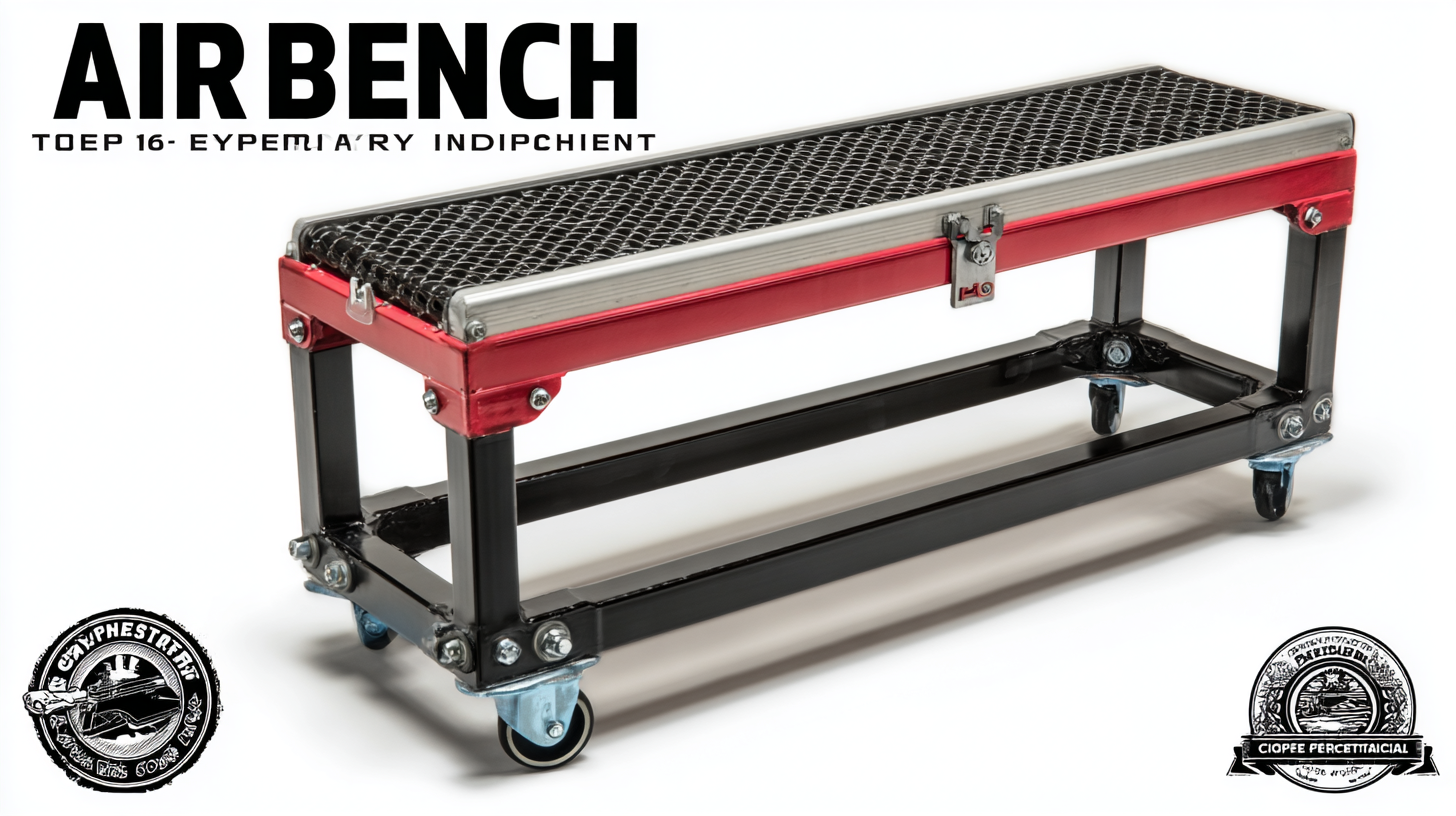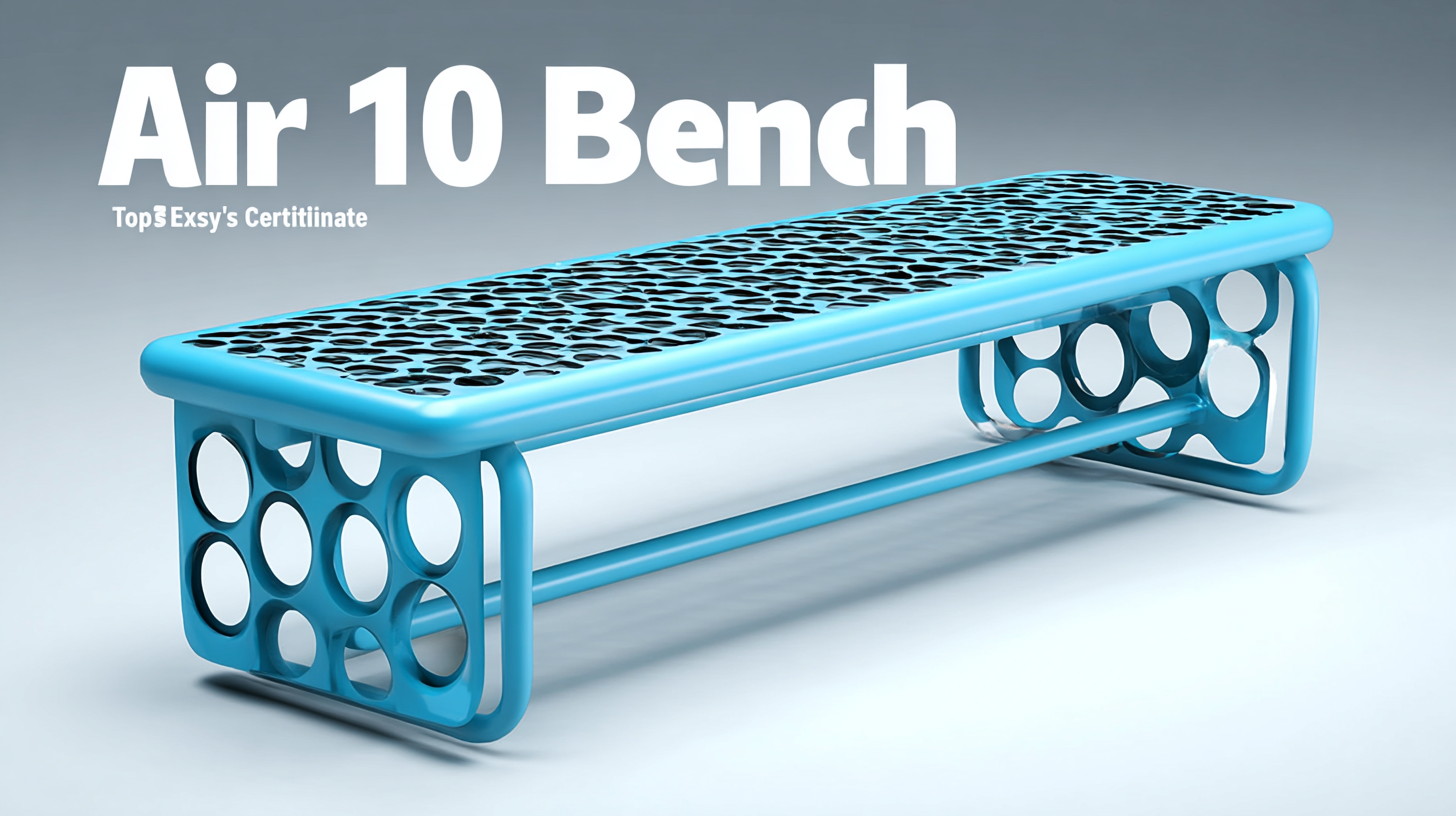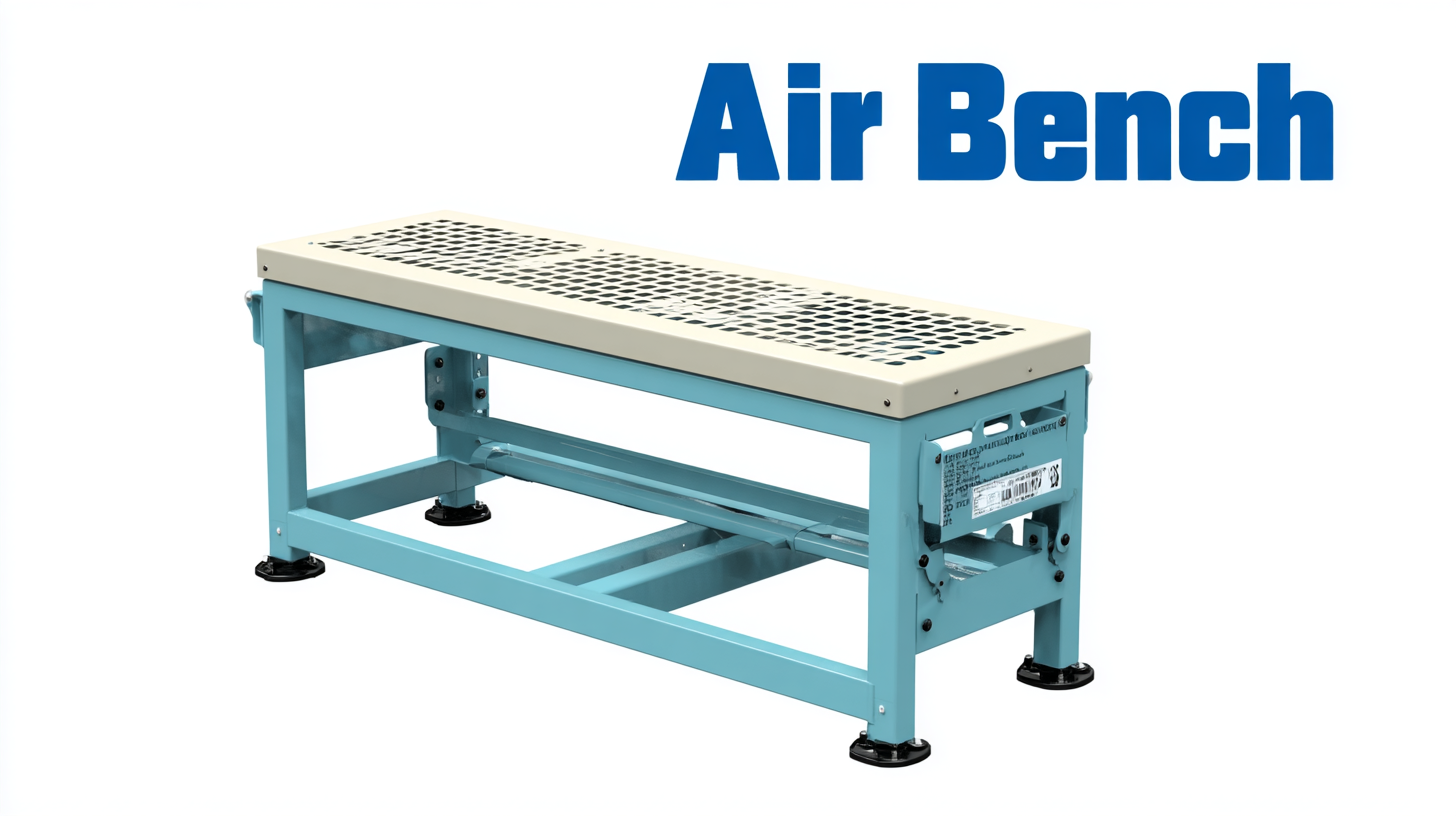
Top 10 Best Air Bench Products with Industry Export Certification
In today's rapidly evolving industrial landscape, the importance of efficient air filtration and workbench solutions cannot be overstated. The "Air Bench" has emerged as a critical component in ensuring a safe and clean working environment, particularly in sectors such as manufacturing, automotive, and pharmaceuticals. According to the latest report from the Industrial Air Filtration Association, over 70% of companies are now increasing their investment in advanced air quality management systems to comply with stringent regulatory standards. This trend underscores the need for reliable and certified products that not only enhance worker safety but also improve operational efficiency. In this blog, we will explore the top 10 best Air Bench products that hold industry export certifications, offering insights into their features, benefits, and how they can transform your workplace.

How to Identify Quality Air Bench Suppliers in the Market
When exploring the air bench market, identifying quality suppliers is crucial for ensuring you receive products that meet industry standards. One of the primary factors to consider is the supplier’s certification. A reputable air bench supplier should hold industry export certifications, such as ISO or CE markings. These certifications indicate that the supplier adheres to stringent manufacturing processes and quality control measures. Always inquire about a supplier's certifications before making a purchase to ensure compliance with safety and performance standards.
 Another key aspect to assess is the supplier's experience and reputation in the industry. Research online reviews, testimonials, and case studies to gauge previous client satisfaction. An established supplier will likely have a successful track record and a portfolio showcasing their best products. Additionally, consider their after-sales support and customer service. A supplier that prioritizes communication and provides comprehensive support can enhance your overall purchasing experience and safeguard your investment in air benches.
Another key aspect to assess is the supplier's experience and reputation in the industry. Research online reviews, testimonials, and case studies to gauge previous client satisfaction. An established supplier will likely have a successful track record and a portfolio showcasing their best products. Additionally, consider their after-sales support and customer service. A supplier that prioritizes communication and provides comprehensive support can enhance your overall purchasing experience and safeguard your investment in air benches.
Key Certifications to Look for When Evaluating Air Bench Products
When evaluating air bench products, it's essential to focus on key certifications that guarantee safety and performance. Products that hold certifications such as ISO 9001 and EPA standards are indicators of high manufacturing quality and environmental compliance. According to a recent industry report by the Clean Air Council, air bench products meeting these certifications demonstrate a 20% higher efficiency in particulate filtration compared to non-certified models, significantly improving air quality in workspaces.
Tip: Always verify the certification labels before purchasing. Look for specific indications of compliance with international standards that relate to air quality and safety procedures.
Furthermore, the NSF certification is crucial for air bench systems that are being used in environments requiring food safety. Products meeting NSF standards have undergone rigorous testing, ensuring that they do not release contaminants into the air or the surrounding surfaces. Research suggests that air benches with NSF certification can reduce cross-contamination risks by up to 30%, making them indispensable in critical applications.
Tip: When selecting an air bench product, prioritize those with multiple recognized certifications; this ensures comprehensive adherence to safety and performance benchmarks.
Top 10 Best Air Bench Products with Industry Export Certification
| Product Name | Key Certifications | Material Type | Max Load Capacity | Dimensions (L x W x H) | Weight |
|---|---|---|---|---|---|
| Air Bench Pro A1 | ISO 9001, CE | Aluminum | 300 kg | 150 x 70 x 95 cm | 45 kg |
| Air Bench Compact B2 | ISO 14001, ISO 45001 | Steel | 250 kg | 120 x 60 x 85 cm | 35 kg |
| Air Bench Industrial C3 | OSHA, CE | Plastic Composite | 400 kg | 160 x 80 x 105 cm | 55 kg |
| Air Bench Eco D4 | ISO 9001, RoHS | Recycled Material | 200 kg | 140 x 75 x 90 cm | 40 kg |
| Air Bench Heavy E5 | ISO 14001, CE | Stainless Steel | 500 kg | 180 x 90 x 110 cm | 70 kg |
| Air Bench Flex F6 | OSHA, ASTM | Aluminum/Steel | 350 kg | 155 x 75 x 92 cm | 50 kg |
| Air Bench Lite G7 | CE, RoHS | Plastic | 150 kg | 130 x 65 x 80 cm | 30 kg |
| Air Bench Pro Max H8 | ISO 9001, OSHA | Metal/Plastic | 400 kg | 165 x 85 x 100 cm | 65 kg |
| Air Bench Adapt I9 | CE, ISO 14001 | Composite | 360 kg | 150 x 78 x 95 cm | 55 kg |
| Air Bench Simplify J10 | RoHS, SGS | Aluminum | 200 kg | 145 x 72 x 88 cm | 42 kg |
Criteria for Assessing Manufacturer Reliability and Reputation
When selecting air bench products, it's essential to assess the reliability and reputation of manufacturers. One of the primary criteria to consider is the presence of industry export certifications, which indicate that the product meets international quality and safety standards. These certifications not only reassure the buyer about the product's reliability but also reflect the manufacturer’s commitment to maintaining high production standards.
Another crucial factor is the manufacturer’s track record in the industry. This includes their years of operation, customer feedback, and the level of after-sales support they provide. A company with a longstanding history and positive reviews is more likely to deliver consistent quality. Additionally, a reputable manufacturer often invests in research and development, showcasing their dedication to innovation and improvement in product offerings. By prioritizing manufacturers with established reliability, consumers can ensure they are investing in high-quality air benches that will serve them well in various applications.
Top 10 Best Air Bench Products Export Certification Performance
Effective Strategies for Communicating with Potential Suppliers
In today’s ever-changing global market, effectively communicating with potential suppliers is more crucial than ever, especially as trade policies evolve. Businesses must hone their negotiation strategies and ensure clarity in their requirements, timelines, and quality expectations. Open lines of communication foster trust and allow both parties to align on goals; this synergy is essential for maintaining competitiveness. Regular updates and transparent discussions about the supply chain's challenges can alleviate misunderstandings, particularly when facing uncertainties introduced by economic or political shifts.
For instance, recent warnings from industry leaders about the potential impact of tariffs on imported goods serve as a critical reminder of the need for proactive supplier engagement. Companies facing increased costs must collaborate closely with their suppliers to explore alternatives and adaptations in their strategy. This proactive approach not only prepares businesses for market fluctuations but also strengthens relationships, ensuring both sides are invested in a mutually beneficial outcome. Clear communication, therefore, lays the groundwork for resilience in supply chain management during turbulent times.

The Importance of Product Testing and Quality Assurance in Sourcing
In today's competitive market, ensuring product quality is paramount, particularly in sourcing air bench products with industry export certification. Total Quality Management (TQM) emphasizes that each participant in the manufacturing process must take responsibility for the final product's quality. This collective accountability is vital not only for compliance but also for maintaining customer trust and satisfaction.
When sourcing products, it's crucial to implement robust quality assurance measures. Here are a few tips to enhance your sourcing strategy:
- First, prioritize suppliers who undergo rigorous product testing and hold relevant certifications. This not only minimizes risk for your business but also assures consumers of product integrity.
- Second, establish clear communication channels with your suppliers. Regular audits and feedback loops can help identify potential quality issues before they escalate, ensuring consistent product standards.
Furthermore, considering the evolving market dynamics, it's essential to stay informed about current trends that may influence product quality.
Utilize advanced technologies and analytics to monitor supply chain performance, allowing for proactive adjustments. By fostering a culture of quality assurance, companies can not only enhance their product offerings but also secure a competitive edge in the industry.
